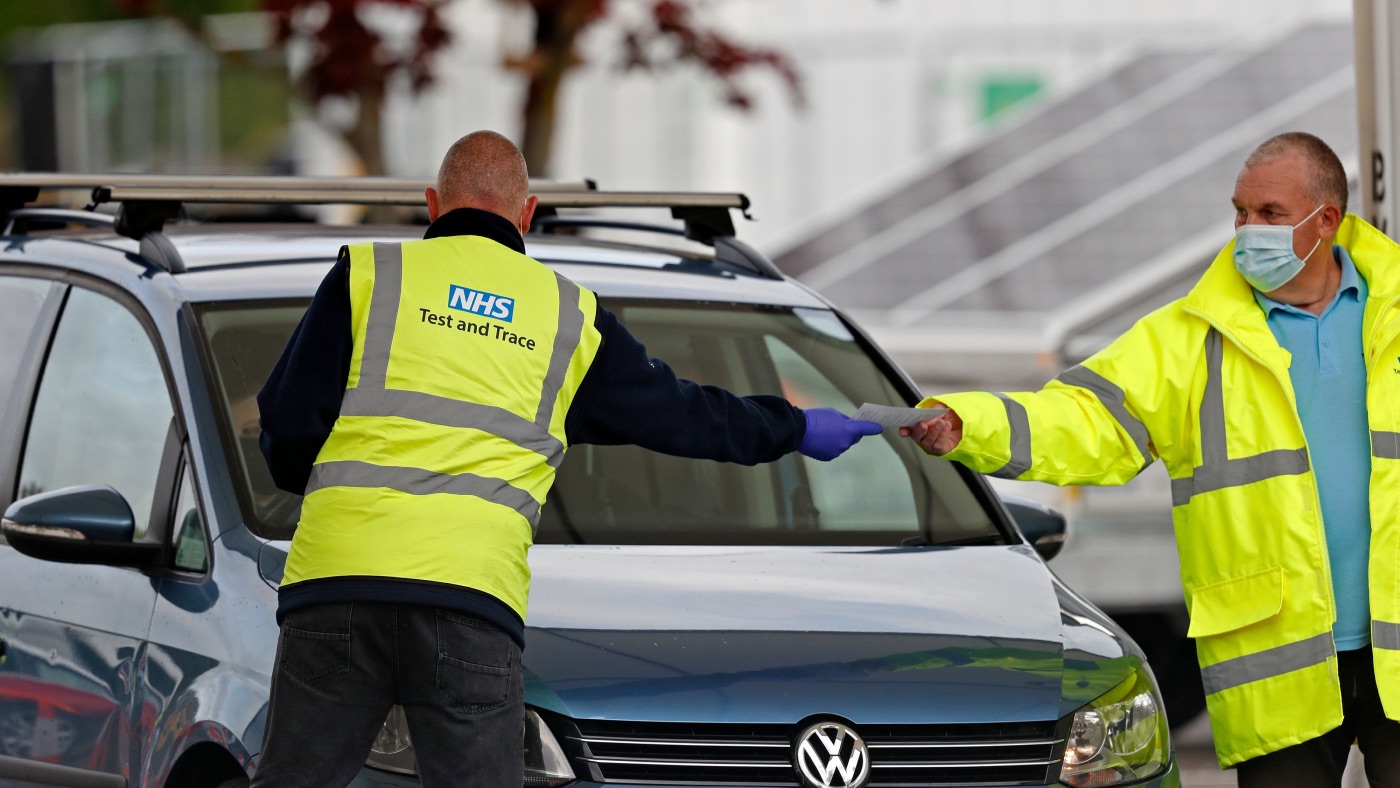Coronavirus: ‘missing data’ makes it impossible to know if test-and-trace works
Lack of ‘real-time’ figures means £12bn system may not be reducing infection rates

A free daily email with the biggest news stories of the day – and the best features from TheWeek.com
You are now subscribed
Your newsletter sign-up was successful
Missing data is making it impossible to assess whether the government’s test-and-trace programme is reducing the spread of coronavirus, researchers have discovered.
Scientists at University College London (UCL) found that it is “unknown how many people are isolating with Covid-19 symptoms at present” and “no routine data is collected on whether people actually isolate for the full 14 days”, The Times reports.
Without this “real-time information” it is impossible to assess how effective NHS test-and-trace is in reducing the spread of the virus, the paper adds.
The Week
Escape your echo chamber. Get the facts behind the news, plus analysis from multiple perspectives.

Sign up for The Week's Free Newsletters
From our morning news briefing to a weekly Good News Newsletter, get the best of The Week delivered directly to your inbox.
From our morning news briefing to a weekly Good News Newsletter, get the best of The Week delivered directly to your inbox.
The UCL researchers developed Covid Red, a public health data dashboard, to explore the effectiveness of the crucial system.
Professor Christina Pagel, one of the team behind Covid Red, said: “One of the major things that’s missing and has always been missing is the evaluation data on isolation.”
Pagel called for data to be “collected and reported weekly”, because “if people are not isolating then it’s just window dressing”.
Professor Deenan Pillay, who also worked on the project, added that it was easy for people to become “disenchanted” with continued restrictions when they did not have the data to show why they were needed.
A free daily email with the biggest news stories of the day – and the best features from TheWeek.com
“Track, trace, isolate is a key part of monitoring the effectiveness of social distancing measures, and to ensure infections remain low once we come out of current and future restrictions,” he said
Earlier this week, it was revealed that the UK’s much-maligned test-and-trace system is failing to reduce Covid transmission at anything like the rate achieved in many other countries. Downing Street’s scientific advisers found that the scheme is only “having a marginal impact” on infections, despite its £12bn price tag.
Chas Newkey-Burden has been part of The Week Digital team for more than a decade and a journalist for 25 years, starting out on the irreverent football weekly 90 Minutes, before moving to lifestyle magazines Loaded and Attitude. He was a columnist for The Big Issue and landed a world exclusive with David Beckham that became the weekly magazine’s bestselling issue. He now writes regularly for The Guardian, The Telegraph, The Independent, Metro, FourFourTwo and the i new site. He is also the author of a number of non-fiction books.
-
 Sepsis ‘breakthrough’: the world’s first targeted treatment?
Sepsis ‘breakthrough’: the world’s first targeted treatment?The Explainer New drug could reverse effects of sepsis, rather than trying to treat infection with antibiotics
-
 James Van Der Beek obituary: fresh-faced Dawson’s Creek star
James Van Der Beek obituary: fresh-faced Dawson’s Creek starIn The Spotlight Van Der Beek fronted one of the most successful teen dramas of the 90s – but his Dawson fame proved a double-edged sword
-
 Is Andrew’s arrest the end for the monarchy?
Is Andrew’s arrest the end for the monarchy?Today's Big Question The King has distanced the Royal Family from his disgraced brother but a ‘fit of revolutionary disgust’ could still wipe them out
-
 A Nipah virus outbreak in India has brought back Covid-era surveillance
A Nipah virus outbreak in India has brought back Covid-era surveillanceUnder the radar The disease can spread through animals and humans
-
 Covid-19 mRNA vaccines could help fight cancer
Covid-19 mRNA vaccines could help fight cancerUnder the radar They boost the immune system
-
 The new Stratus Covid strain – and why it’s on the rise
The new Stratus Covid strain – and why it’s on the riseThe Explainer ‘No evidence’ new variant is more dangerous or that vaccines won’t work against it, say UK health experts
-
 RFK Jr. vaccine panel advises restricting MMRV shot
RFK Jr. vaccine panel advises restricting MMRV shotSpeed Read The committee voted to restrict access to a childhood vaccine against chickenpox
-
 RFK Jr. scraps Covid shots for pregnant women, kids
RFK Jr. scraps Covid shots for pregnant women, kidsSpeed Read The Health Secretary announced a policy change without informing CDC officials
-
 New FDA chiefs limit Covid-19 shots to elderly, sick
New FDA chiefs limit Covid-19 shots to elderly, sickspeed read The FDA set stricter approval standards for booster shots
-
 RFK Jr.: A new plan for sabotaging vaccines
RFK Jr.: A new plan for sabotaging vaccinesFeature The Health Secretary announced changes to vaccine testing and asks Americans to 'do your own research'
-
 Five years on: How Covid changed everything
Five years on: How Covid changed everythingFeature We seem to have collectively forgotten Covid’s horrors, but they have completely reshaped politics